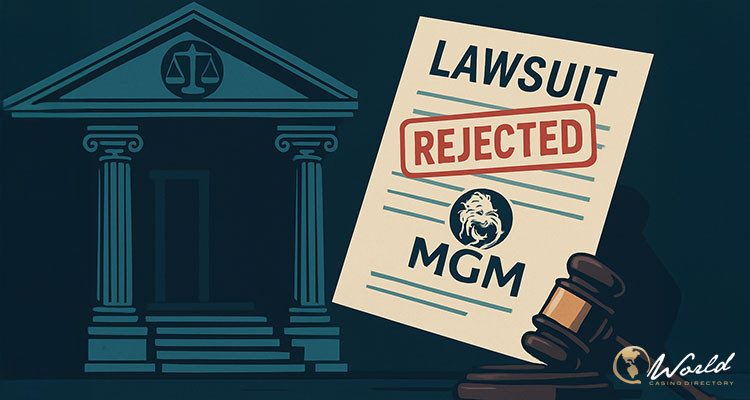A federal appellate court has rejected a lawsuit brought by self-proclaimed problem gambler Sam A. Antar, who alleged that MGM Resorts and its subsidiaries actively encouraged his excessive gambling despite being aware of his addiction. The Third Circuit Court of Appeals upheld an earlier dismissal, affirming that New Jersey law does not place a legal obligation on casinos to prevent compulsive gamblers from wagering.
Appeals court dismisses gambling addiction lawsuit against MGM:
Antar originally filed the suit in 2022, accusing MGM of negligence and violations of the New Jersey Consumer Fraud Act (CFA). He claimed that after being enrolled as a “NOIR” member in the company’s high-tier VIP program, he was assigned two hosts who persistently incentivized his gambling via calls, emails, and text messages. According to court documents, between June 2019 and January 2020, Antar received more than 1,800 texts from his VIP handlers offering bonuses and promotional credits, which he claimed led him to lose over $24 million through MGM’s BetMGM and Borgata Online platforms.
Despite Antar’s arguments, the appeals court found no legal precedent that supports holding casinos liable for the losses of compulsive gamblers. Senior U.S. Circuit Judge Jane Roth wrote in the opinion, “Recognizing that New Jersey does not impose a duty of care on casinos over problem gamblers, statutorily or through case law, the district court properly dismissed Antar’s negligence claim.” She also emphasized that both New Jersey case law and the New Jersey Casino Control Act (CCA) consistently shield the gaming industry from this type of private litigation.
Antar’s legal team attempted to equate the casino’s conduct with knowingly selling a dangerous product. His attorney, Matthew Litt, compared VIP host incentives to manipulative sales tactics, arguing during oral arguments, “It’s not that they fail to do something. It’s that they use their product in a way they knew to be dangerous, and the plaintiff was harmed.”
However, Roth, along with Circuit Judges Stephanos Bibas and Cindy K. Chung, disagreed with this analogy. They noted that the communications between MGM’s hosts and Antar were transparent, offering gambling incentives as advertised. The panel concluded that Antar failed to demonstrate any misleading or unlawful actions by the casino operators.
Even under the Consumer Fraud Act, which requires a showing of deceptive or fraudulent conduct, the court found no basis for Antar’s claim. While Antar insisted that he was misled by the volume and nature of the offers, Roth stated in the opinion that he “was fully aware that the text messages from his VIP hosts offering bonuses, credits and deposit matches were exactly as the hosts represented — enticements to continue to gamble.”
Furthermore, the court determined that Antar did not suffer an “ascertainable loss” — a core requirement under the CFA. Although Antar argued that his gambling losses during VIP host communications should count, the judges concluded it would be virtually impossible to separate which losses were influenced by those interactions.
Creative argument deemed legally invalid:
Antar also proposed that, due to his addiction, the casino services held no value for him — effectively labeling the gambling experience as “worthless” because he was destined to lose. According to Courthouse News Service, while Roth acknowledged this perspective as “creative,” the panel rejected it, stating, “Each time Antar placed a bet through the defendants’ platforms, what he received in return was not ‘worthless.’ Rather, he received exactly what he thought he was purchasing — a gambling experience where winning was not guaranteed.”
Earlier this year, U.S. District Judge Madeline Cox Arleo had also dismissed Antar’s case, ruling that the CCA was the proper framework for issues related to casino operations and that the CFA did not apply. She emphasized that New Jersey law imposes no duty on casinos to prevent known problem gamblers from placing bets.
Antar’s appeal challenged that ruling, arguing the CCA should not override consumer protection laws like the CFA. He also questioned whether the Casino Control Commission had jurisdiction in this matter, asserting that his case involved personal harm rather than regulatory breaches. Nonetheless, the appellate court backed the earlier decision and dismissed his claims.
Antar, who is serving a three-year sentence for financial fraud, was accused by BetMGM in earlier court filings of using the lawsuit as a means to recoup funds to pay court-ordered restitution. The company characterized the litigation as part of a broader attempt to fund repayments for what it called a “rolling Ponzi scheme.”
At the time of writing, representatives for both Antar and MGM Resorts have not issued public comments on the ruling.



